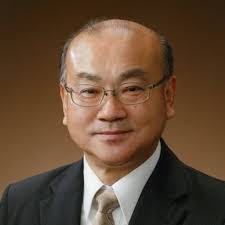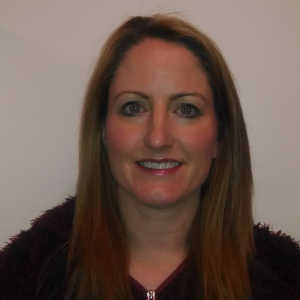Prof. Kotaro Yonezu
Kyushu University
Japan
Prof. Kyuro Sasaki
Institute for Future Engineering
Japan
Prof. Amanda Clarke
Arizona State University
USA

Kyushu University
Japan

Institute for Future Engineering
Japan

Arizona State University
USA
A/Prof. Kotaro Yonezu is an Associate Professor in the Faculty of Engineering at Kyushu University, specifically within the Department of Earth Resources Engineering. He holds a Doctor of Engineering (D.Eng.) degree and is part of the Economic Geology group, focusing on geology for mineral exploration, magnetic hydrothermal systems, and geochronology and thermochronology for earth resources at Kyushu University. He has contributed extensively to research in his field. His recent work includes studies on the kinetics of siliceous scale deposition at the Dieng Geothermal Power Plant in Indonesia and the geological characteristics of various mineral deposits worldwide. His publications often appear in proceedings from international symposia and reputable journals, highlighting his involvement in global geological research.
Prof. Kyuro Sasaki is a senior researcher at Institute for Future Engineering (IFENG), and a professor emeritus at Kyushu University (KU), Japan since April 1st, 2021. He taught at Mining College, Akita University for 20 years, and Department of Earth Resources Engineering, Faculty of Engineering KU for 16 years. He holds BS, MS, and PhD degrees from Hokkaido University, Sapporo, Japan. His research interests are mineral resources production, fluid mechanics and heat & mass transfer phenomena in Mining and Petroleum Industries. He has published several papers on SAGD, Methane Hydrate Production Method and Enhanced Coal Bed Methane Recovery, CO2 Geological Storage, Spontaneous Combustion of Coal and Mine Ventilation, etc. He recently focuses on studying CO2 geological storage, CO2 leakage monitoring system and Engineering education.
Prof. Amanda Clarke is a professor whose research focuses on the physics of volcanic eruptions. Her group conducts field work to investigate deposits of recent volcanic eruptions and to make quantitative measurements at erupting volcanoes. She also invests in developing and using numerical models and laboratory experiments to understand volcanic systems. She and her group interpret volcanic rocks on Earth and Mars, investigate highly-explosive basaltic volcanism, post-caldera activity, eruption triggering, and interactions between geologic processes (e.g., earthquake-triggered volcanic activity and the interaction between volcanic plumes and Earth’s atmosphere). Key aims include reducing volcanic risk to human populations and infrastructure, as well as understanding the role volcanic eruptions have played in planetary evolution.
Junji Kiyono is a Professor of Earthquake/Lifeline Engineering laboratory in the Department of Urban Management, Kyoto University, Japan. He has studied earthquake engineering which covers a wide field from a study of strong ground motion estimation nearby seismic fault zone, damage survey of civil structures to the investigations of the mechanisms causing the structural and human damage by earthquakes.
He is a graduate of Kyoto University and received his Master of Science Degree (1981) and Doctor of Engineering (1992) from Kyoto University. Dr. Kiyono worked at the Disaster Prevention Research Institute, Kyoto University from 1981 to 1993, Department of Computer Science and Information Engineering, Yamaguchi University from 1994 to 1997, and Faculty of Engineering, Kyoto University from 1997 to date. Since 2020 he is appointed as the Faculty Consort Director of Global Engineering, Kyoto University.
He was dispatched to many earthquake-damaged areas in and outside of Japan to investigate damage to infrastructures, earthquake ground motion and casualty occurrence mechanism. He has continued disaster prevention education in Indonesia for fourteen years with his students from 2005 after the 2004 Sumatra Earthquake. He was dispatched to Turkey total six months as an expert of JICA. He is a leader of disaster prevention research group for the mission-oriented program (project term: 2001-2005) in the Research Institute of Science and Technology for Society (managed by the Japan Science and Technology Agency (JST)) which aims at solving various problems in our society through the development of knowledge systems based on science and technology. He has been appointed as the President of Japan Association of Earthquake Engineering (JAEE: 2021-2022).
Now he is a Japanese supporting member of AUN/SEED-Net (2008-) and JICA Myanmar Project for Enhancement of Engineering Higher Education (JICA EEHE Project: 2013-2020). The second phase of the EEHE Project has just started on January, 2021 for four years.
Prof. Ramon Arrowsmith has been at Arizona State University since 1995 where he teaches field geology, structural geology, geomorphology, and computers in earth and space exploration. He holds Ph.D. Geological and Environmental Sciences, Stanford University, 1995, supervised by David D. Pollard, with dissertation title Coupled Tectonic Deformation and Geomorphic Degradation along the San Andreas Fault System.
He has more than 20 years experience studying the earthquake geology, paleoseismology, and geomorphology of fault zones and publishing about their history of activity and hazards. He is cofounder and co-PI of the OpenTopography effort—a portal to the largest collection of freely available high resolution topography data (http://www.opentopography.org/).
He has lead many short courses, workshops, and visioning activities emphasizing high resolution topographic data and tectonic geomorphology. He and his students research on active faulting, earthquake geology, tectonic geomorphology, and the geologic framework for human origins. He has held a number of administrative positions in the ASU School of Earth and Space Exploration (SESE) including associate chair (of Geological Sciences Department), associate directors of graduate studies and of pperations, and is currently the deputy director of SESE.
Since 2005, Prof. Rüde is a full professor for hydrogeology at the RWTH Aachen University, the leading technical university in Germany, and Head of the Institute of Hydrogeology. He also serves as Rector’s Delegate for the cooperation with Indonesia. Prof. Rüde started his career at the University of Karlsruhe, now the KIT, in hydrogeology and geochemistry. His Ph.D. thesis focused on arsenic in the environment. For post-doc, he moved to the University of Munich and worked on geogenic arsenic, heavy metal release from steel slags, natural attenuation of contaminated aquifers and regional groundwater systems.
Topics of his research are flow and transport in aquifer systems used for water supply, geogenic arsenic and uranium in groundwater, mine drainage and groundwater protection, tracer tests and hydraulic tests, hydrogeological and numerical modelling of aquifers, and groundwater remediation. Prof. Rüde experienced academic teaching since more than 30 years and was awarded several times for best teaching. Since 2007, he work with colleagues of Universitas Gadjah Mada and Universitas Diponegoro on groundwater issues and represent the RWTH Aachen as GetIn-CICERO Campus Dean.
Koichiro Watanabe is a Professor of Economic Geology at Kyushu University, Japan. He is a leader in Applied Resource Geology research in Japan. He currently serves on the Vice-President for International Affairs and the Director of the International Student Center of Kyushu University. He received Grant-in-Aid for Scientific Research from the Japan Society for the Promotion of Science from 2002 to 2013. He has co-published over 150 peer-reviewed papers focused on the application of geothermal geology, volcanology and on economic geology, including over 40 Ph.D. students in the last 15 years.
Prof. Dwikorita Karnawati (Rita) Ph.D., has been appointed as the Head of Indonesia Agency for Meteorology, Climatology and Geophysics (BMKG), since November 2017, after her completion in serving as the President of Universitas Gadjah Mada (UGM), a prominent university with 55,000 students in Indonesia. She has extensive professional experiences and academic backgrounds as a Professor in Environmental Geology and Disaster Mitigation at UGM. Indeed, she is very active in promoting and developing the National Multi-Hazard Early Warning System (MHEWS), and very well-respected as one of the key expert leaders in developing Presidential Decree for the Indonesia MHEWS.
Obtaining the Ph.D. Degree in Earth Sciences from Leeds University, UK in 1996, she continued her research on Hydrometeorological Disaster Prediction in the Post Doctoral Program at Tokyo University of Agriculture and Technology, Japan. Then, she received the Leverhulme Professorship Award to further developed her research for Community-Based Landslide Early Warning System, in The Institute for Advanced Studies, at Bristol University, UK in 2003. In October 2011, her research in Community-Based Landslide Early Warning System was selected as one of the best research on Landslide Disaster Risk Reduction by the International Consortium on Landslides, which led to the appointment of UGM as the World Center of Excellence for Landslide Disaster Risk Reduction. Furthermore, she was awarded the Fulbright Senior Research Program to develop Integration of Technical and Human Sensors for Early Warning System of Landslides, carried out in The Visualization Center-Homeland Security Post Graduate Program, at San Diego State University, California, USA in 2011-2012.
Since 2015, Prof. Rita has been appointed as the Vice President of the International Consortium on Landslides (ICL). In such a position, she actively promoted and developed the integration of the technical sensors and human sensors for the hydro-meteorological early warning system, in which one of her team innovative products has become an international reference (ISO 22327) in 2018. In 2019 she has been elected as the Chair of the Intergovernmental Coordination Group of Indian Ocean Tsunami Warning and Mitigation System (ICG/IOTWMS). Indeed, due to her extraordinary works, she received series of research grants from the World Bank, as well as from the Japan International Cooperation Agency (JICA) and the British Council, which then very important to support the process of developing the Multi-Hazard Early Warning System, especially related to hydrometeorology disaster, earthquake and tsunami in Indonesia, with respect to life survivability and environmental protection.
In addition, Prof. Rita has been consistently working on capacity development and education programs for Disaster Mitigation since 2004. Between 2004 and 2014, she served as the coordinator for the ASEAN University Network – South East Asia Engineering Education Development Program (AUN Seed Net) in the field of Disaster Mitigation (which includes hydrometeorological disaster). In her recent position as the Head of the Agency, she actively drives the innovation on Early Warning Technology and Impact-based Forecasting Systems for Meteorology, Climatology and Geophysics, powered by the Big Data, Artificial Intelligent (AI), and Internet of Things (IoT), which also connected to Social Media, Mobile Apps and YouTube. Receiving an extensive recognition from national and local counterparts as well as from various international organizations for her work, she also has been invited to deliver keynote speeches and lectures in conferences, meetings, and events in various universities and institutions in the USA, Europe, Australia, New Zealand, India, Japan, China, and Africa, to share her best practices of her experiences in Disaster Risk Reduction and Early Warning System.
